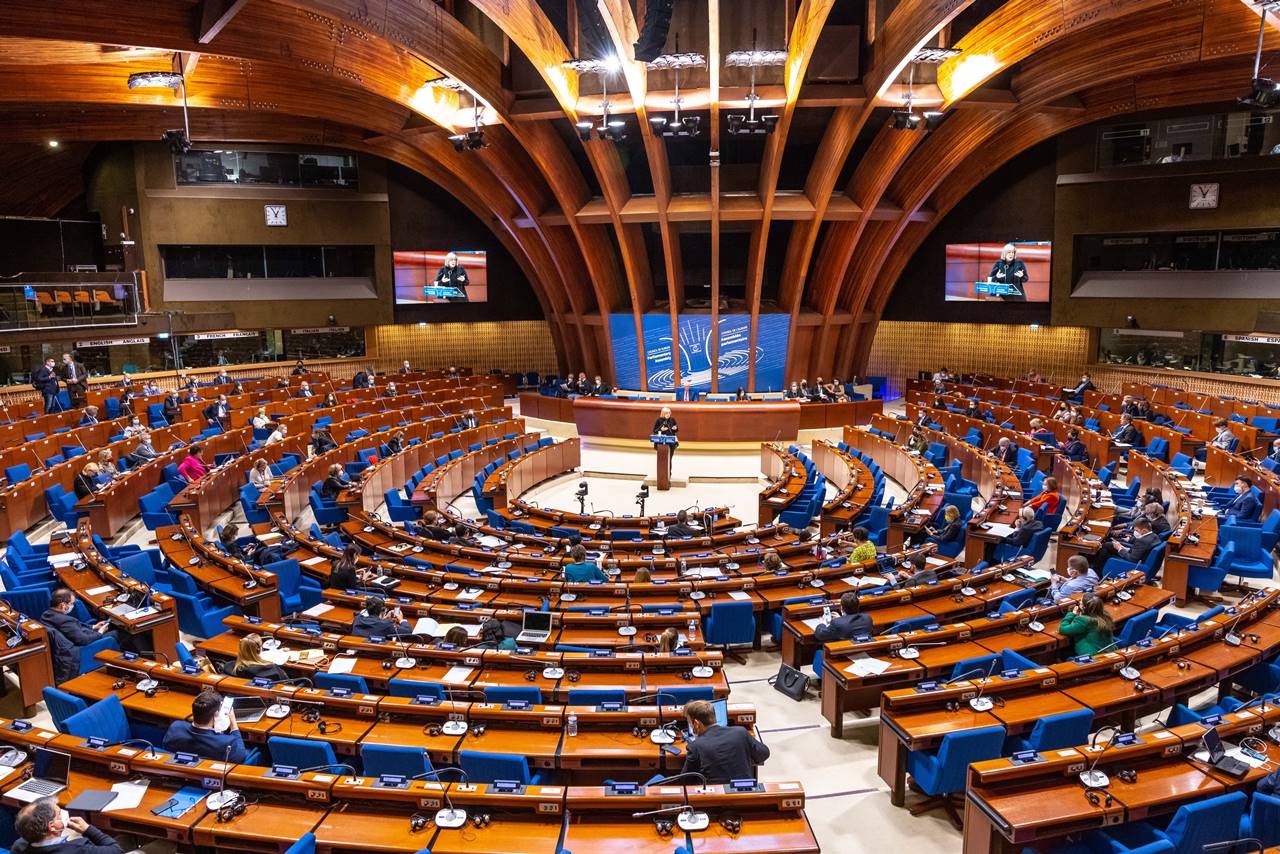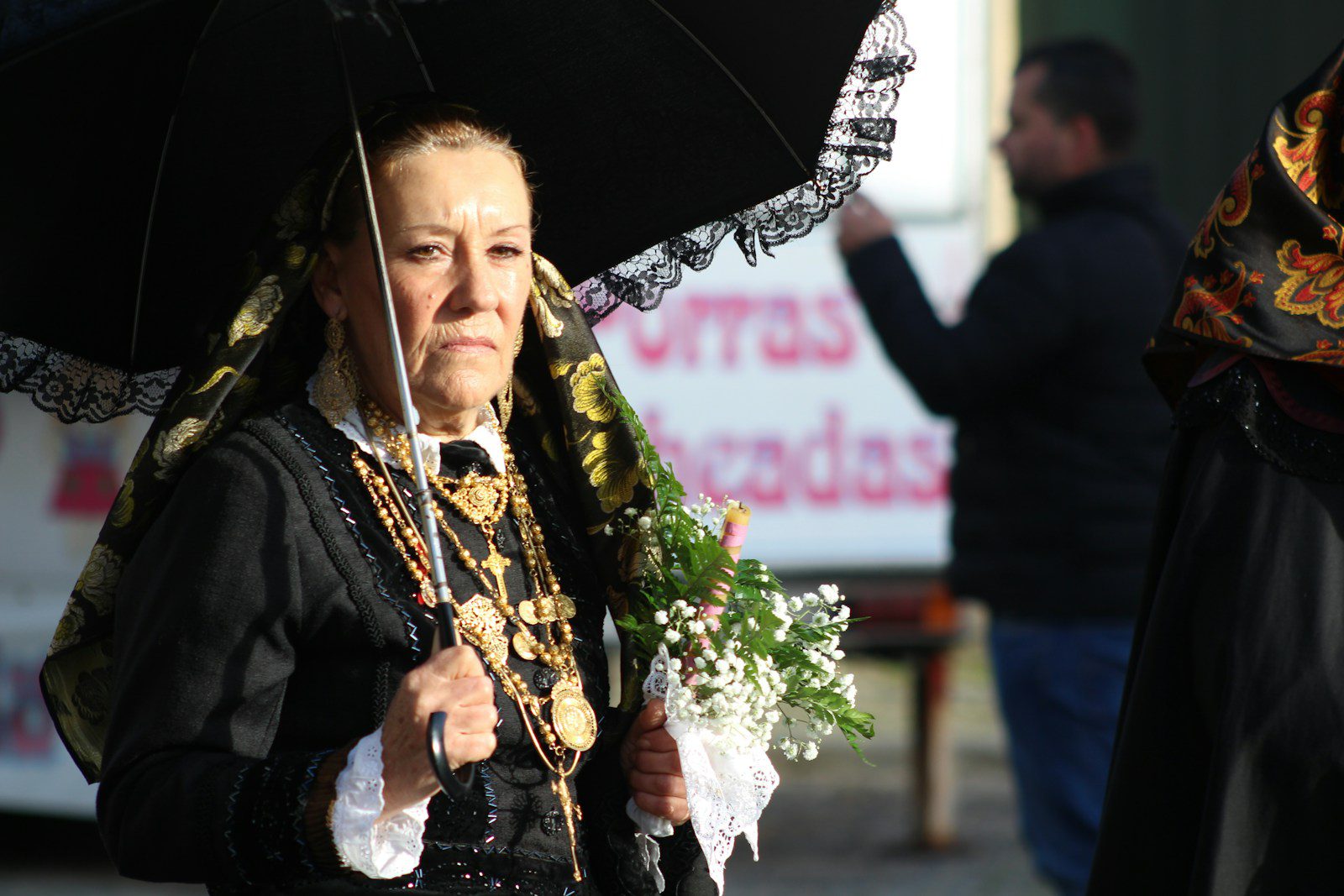Politics
Abaya Ban in French Schools Reopens Contentious Laïcité Debate and Deep Divisions

As reported through a newsletter from the Brussels-based NGO Human Rights Without Frontiers, the end of summer vacation in France, known as the “rentrée,” often brings renewed social tensions. This year has followed that pattern, as the calm of summer gave way to another dispute over a recurring national issue: how Muslim women should dress.
In late August, with France still, on break, Gabriel Attal, the 34-year-old newly appointed education minister and a favourite of President Emmanuel Macron, announced that “the abaya can no longer be worn in schools”, reports Roger Cohen in the New York Times
His abrupt order, applying to public middle and high schools, banned the loose-fitting full-length robe worn by some Muslim students. It ignited another debate over French identity.
The government believes education should eliminate ethnic or religious differences in service of a shared commitment to the rights and responsibilities of French citizenship. As Mr. Attal put it, “You should not be able to distinguish or identify the students’ religion by looking at them.”
Protests on the ban of the abaya
Since the announcement, Muslim organizations representing the approximately 5 million Muslim minority have protested. Some girls have worn kimonos or other long garments to school to show the ban seems arbitrary. A heated debate erupted over whether Mr. Attal’s August surprise, right before the school year, was a political stunt or a necessary defence of France’s secular ideals.
“Attal wanted to appear tough for political gain, but this was cheap courage,” said Nicolas Cadène, co-founder of an organization monitoring secularism in France. “Real courage would be addressing segregated schooling that leads to separate ethnic and religious identities.”
The issue of religious symbols in schools is not new. France banned “ostentatious” ones in 2004, leaving room for interpretation.
The question has been whether the law equally targeted Muslim headscarves, Catholic crosses and Jewish kippas, or mainly focused on Islam. The abaya, reflecting Muslim identity but potentially just modest attire, was a grey area until Mr. Attal’s statement.
In practice, “ostentatious” has often meant Muslim. France’s concern over secularism fractures, heightened by devastating Islamist attacks, has centred on Muslims shunning “Frenchness” for religious identity and extremism.
The niqab, veil, burkini, abaya and even headscarves on school trips have received unusual scrutiny in France compared to Europe and especially the United States, which emphasizes religious freedom over French freedom from religion.
In recent years, strict secularism, intended in 1905 to remove the Catholic Church from public life, hardened from a widely accepted model permitting religious freedom into an unbending contested doctrine embraced by the right and broader society as a defence against threats ranging from Islamic extremism to American multiculturalism.
“This should have been done in 2004, and would have been if we did not have gutless leaders,” said Marine Le Pen, the far-right, anti-immigration leader, of Mr Attal’s move. “As General MacArthur observed, lost battles can be summed up in two words: too late.”
The question is: too late for what? Banning abayas in schools as Mr. Attal demands? Or stopping the spread of disadvantaged schools in troubled suburbs where opportunities for Muslim immigrant children suffer and radicalization risks grow?
This is where France splits, with over 80 percent approving the ban but critical for the country’s future.

Some see secularism as enabling equal opportunity, while others view it as hypocrisy masking prejudice, as illustrated by those suburbs.
The teacher Samuel Paty’s 2020 beheading by an extremist still provokes fury. Yet the riots after a police shooting of a teen of Algerian and Moroccan descent showed resentment over perceived Muslim risk.
“The French government invokes 1905 and 2004 laws to ‘protect Republican values’ from a teenage dress, revealing its weakness in enabling peaceful coexistence beyond differences,” wrote sociologist Agnès de Féo in Le Monde.
Éric Ciotti of the centre-right Republicans retorted that “communautarisme” or prioritizing religious/ethnic identity over national identity “threatens the Republic.” Mr. Attal, he said, responded appropriately.
The Republicans matter because Mr. Macron lacks a parliamentary majority, making them a likely legislative ally.
Mr. Attal’s move has clear political aims. Mr Macron governs from the centre but leans right.
Mr Attal replaced Pap Ndiaye, the first Black education minister, in July after rightist attacks forced him out, with thinly veiled racism in the vitriol.
He was accused of importing America’s “diversity doctrine” and “reducing everything to skin colour,” as the far-right Valeurs Actuelles put it.
Before his ouster, Mr Ndiaye rejected a sweeping abaya ban, saying principals should decide case-by-case.
Sheik Sidibe, a 21-year-old Black teaching assistant outside a Paris high school, said his former principal mistreated Muslim students with arbitrary dress checks.
“We should focus on real problems, like teachers’ poor salaries,” said Mr. Sidibe, a Muslim. “Marginalized students in precarious situations need help, not policing clothes.”
The political impact remains unclear. But the measure appears more divisive than unifying despite secularism’s aim.
“Secularism must enable liberty and equality regardless of belief,” said Mr. Cadène. “It must not become a weapon to silence people. That will not make it attractive.”
Politics
Access to official documents held by public authorities: Council of Europe evaluates compliance with the Tromsø Convention in 11 states

Strasbourg, 16.07.2024 – The Council of Europe’s Access Info Group (AIG), an independent group of experts created to monitor the implementation of the Council of Europe Convention on Access to Official Documents by its parties, published today its first baseline evaluation reports on 11 states: Bosnia and Herzegovina, Estonia, Finland, Hungary, Iceland, Lithuania, Montenegro, Norway, the Republic of Moldova, Sweden and Ukraine.
The reports contain comprehensive analyses of the laws on freedom of information in these states and their compliance with the Tromsø Convention. In light of its findings, the AIG makes specific recommendations to each country on issues such as the exclusion of documents containing personal data or other content from the application of these laws, and limitations to the right to access official documents.
Other recommendations concern excessive length of review proceedings in case of access denials and shortcomings in procedures for deciding on access requests, for example, excessive discretion provided to public authorities not to release the requested information or failure to provide assistance to applicants.
The convention, in force since 1 December 2020, is the first-ever binding international legal instrument to recognise everyone’s right to access official documents held by public authorities upon request.
It lays down minimum obligations for its parties to guarantee the right to access official documents, balancing the protection of the public interest in transparency with the protection of other legitimate interests, such as national security, defence and international relations.
The treaty also establishes obligations on the procedures for handling requests for information and the review of denial decisions by an independent body or a court in case of request denials.
Reports:
| Bosnia and Herzegovina | Iceland | Republic of Moldova |
| Estonia | Lithuania | Sweden |
| Finland | Montenegro | Ukraine |
| Hungary | Norway |
* * *
The Access Info Group (AIG) is a body established by the Council of Europe Convention on Access to Official Documents (also known as the Tromsø Convention) to evaluate the treaty’s implementation by the parties in law and practice and to make recommendations to fully comply with its provisions. It is composed of ten independent experts in the field of access to official documents. A second monitoring body, the Consultation of the Parties, complements its work. So far, 15 states have ratified the treaty and another six countries have signed it with a view to its ratification.
Politics
Cruelty Free Europe urges European Commission to speed up animal testing phase-out plans after stats show stalled progress

Animal protection NGO, Cruelty Free Europe, urges Ursula von der Leyen’s incoming European Commission to accelerate plans to phase out animal testing after the release of statistics for 2021 and 2022 showed that progress in reducing the number of animals used in science in the European Union has stalled.
Cruelty Free Europe are, however, pleased to see a significant decrease in the use of animals in regulatory testing (tests which prove the safety and efficacy of consumer products), which is likely to be due to an increase in the adoption of approved non-animal testing methods. This has led to a 21% decrease in the use of animals in regulatory testing since 2020.
European Commission statistics[1] show that there were 9.34 million tests on animals in the EU and Norway in 2022. This is an 8% decrease from 2021 to 2022, but the number of tests has also risen by 7% since 2020.
At 2.13 million, France carried out the most tests using animals in the EU in 2022 – a rise of 29% since 2020. Germany conducted 1.73 million tests and Norway 1.41 million (95% of which involved fish). Spain conducted 1.12 million tests on animals, an increase of 53% on their 2020 total.
These top four countries accounted for 68% of the total number of tests involving animals in the EU in 2022.
There was a small decrease in tests which were reported to have caused ‘severe suffering’, from 2020 to 2022, but a significant increase of 19% in tests which caused moderate suffering (the second highest level of pain), to over 3.71 million. Overall, the number of tests causing moderate or severe suffering to the animals involved totalled 49%.
From 2020 to 2022, there were increases in the uses of:
- Dogs – up 2% to 14,395
- Monkeys – up 5% to 7,658
- Horses, donkeys and cross-breeds– up 5% to 5,098
- Rabbits – up 8% to 378,133
- Goats – up 69% to 2,680
- Pigs – up 18% to 89,687
- Reptiles – up by 74% to 5,937
- Cephalopods (e.g., squid and octopus) – up by 65% to 2,694
There were also decreases in the uses of:
- Cats – down 15% to 3,383
- Ferrets – down 27% to 941
- Guinea pigs – down 23% to 86,192
- Sheep – down 12% to 17,542
There was a decrease in some of the tests included on the RAT (Replace Animal Tests) List[2], created by Cruelty Free Europe founder, Cruelty Free International – a list of regulatory tests that have accepted and reliable non-animal replacements and could be ended immediately. For example, the number of skin and eye irritation, skin sensitisation and pyrogenicity tests fell in 2022 but still amounted to over 55,000. Shockingly, there was an 18% increase (to 49,309 procedures) in the use of the cruel and archaic ascites method of producing antibodies, a test which causes the most severe level of suffering.
The European Commission, in response to Cruelty Free Europe’s 2020 European Citizens’ Initiative, ‘Save Cruelty Free Cosmetics – Commit to a Europe Without Animal Testing’[4], promised last year to develop a roadmap to phase-out animal testing for chemical safety assessments [3]. Last month, in partnership with a group of animal protection NGOs, Cruelty Free Europe led a meeting with key stakeholders from across the European Union as a critical step towards creating a roadmap to end animal testing in Europe.
Cruelty Free Europe’s Head of Public Affairs, Dylan Underhill, said: “These new statistics show how important it is for the European Commission to continue and accelerate its work to end animal testing in Europe. As we enter a new cycle of politics in the European Union it is absolutely vital that we build on the work that has already been done, and double our efforts to speed up progress. We urge the Commission President to press upon her incoming Commissioners the importance of the mission to phase out animal testing, and will be calling on all of them to make this issue a shared priority.
“The 1.2 million people who signed our European Citizens’ Initiative illustrated the strength of feeling that there is on this issue, and we stand ready to help the European Commission take the bold steps forward that we need to reflect public opinion. Without this, we will be condemned to a never-ending cycle of stagnation and small reductions, when what we need is transformative change.”
Politics
Equality over discrimination: history must never repeat itself – President Metsola

The European Parliament marks European Roma Holocaust Memorial Day and honours the Sinti and Roma murdered in Nazi-occupied Europe.
Today, the European Parliament joins the international community in marking European Roma Holocaust Memorial Day and remembering the 500,000 Sinti and Roma who faced atrocities in Nazi-occupied Europe.
On the night between the 2nd and 3rd of August 1944, the last 4,300 Sinti and Roma remaining in the Auschwitz-Birkenau extermination camp were murdered, with most of them being women, children and elderly people. Today, the European Parliament does not only remember the crimes committed against humanity, but also the importance of speaking up.
On this solemn occasion, the European Parliament remembers the lessons learned from the first recognition of the Roma and Sinti Holocaust, and reaffirms that Romani people must enjoy the same rights and treatment as all European citizens.
The President of the European Parliament Roberta Metsola said: “Today we pay tribute to Roma and Sinti people’s contribution to the rich fabric of our European socities. Europe must stand up for the values it holds to be true: the rule of law, democracy and equality. The moment we become complacent is the moment we allow history to repeat itself.”
80 years later, too many Romani women and men in Europe still live in the margins of society. “In our Europe, we cherish our differences, unique traditions, cultures and diversity. That means that Roma people must enjoy the same opportunities and chances as any other European citizen,” President Metsola said.
Since 2015, the European Parliament has been marking the European Roma Holocaust Memorial Day every 2nd August.
First published here.
-

 Politics2 days ago
Politics2 days agoPoland’s Former Prime Minister Mateusz Morawiecki Eyes Leadership of European Conservatives and Reformists
-
Travel4 days ago
Southern European tourists flock to Denmark to escape the heat
-
Travel3 days ago
New Brussels to Venice night train: The 9 cities en route, what it will cost and how to book
-

 EU & the World2 days ago
EU & the World2 days agoAshanti & Nelly Welcome First Child Together & Reveal Baby Boy’s Name
-

 Sports2 days ago
Sports2 days agoAtalanta: PSG-Lookman, there is news
-

 Health & Society2 days ago
Health & Society2 days agoPope Francis calls on religions to unite to reduce demand for drugs
-
EU & the World2 days ago
Mike Lynch Yacht Update: Fifth Body Recovered Off Coast of Sicily
-

 Sports2 days ago
Sports2 days agoTurin, Urbano Cairo retorts to fans on Bellanova








